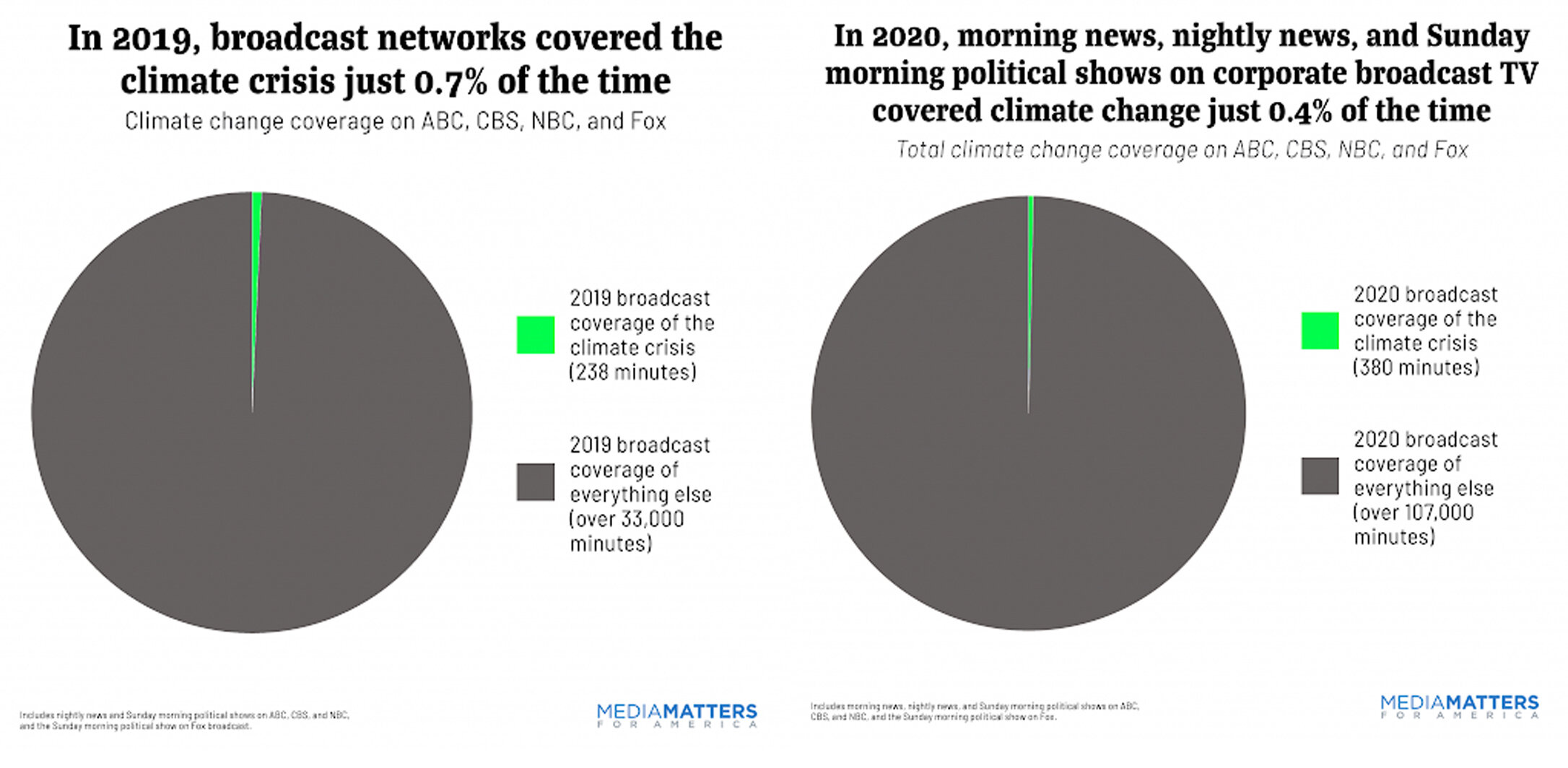On Climate Change, Mainstream Media is Failing the Environment
By Isabella Lombardo, WELLKIND Forestry Intern
Isabella Lombardo was an intern for WELLKIND Forestry during our summer 2021 session, exploring gaps in the media’s coverage of climate change and other important environmental issues.
Picture the glossy ice of Antarctica melting into inky waters. Imagine thick plumes of smoke spewing out of factories and power plants, infiltrating and enveloping the once serene skies of industrial America. Think of forests, now noisy with chirping and rustling, vanishing within less than a decade. These are the ever-more persistent images that come to mind when thinking of the ever-more prevalent issue of climate change.
Though I’m just beginning my journey as an intern for WELLKIND Forestry, my breadth of knowledge encompassing climate change has grown beyond melting ice, pollution, and habitat destruction. A multitude of issues find themselves woven into the intricate tapestry that is climate change. One new gem of knowledge that I found especially interesting is the fact that mainstream media is failing the environment in its coverage of climate change.
First, it’s important to know that major media networks play a huge role in people’s knowledge of environmental issues. In fact, television is the most popular source of climate change news. A study done by Reuters Institute and the University of Oxford found that of 80,000 surveyed (from 40 different countries), 35 percent paid the most attention to television when it came to climate change, which was a significantly higher percentage than any other source (Andi, 2020). So news networks are responsible for informing a significant portion of the public on relevant climate change issues.
EXCLUSION IN MEDIA
I was shocked to learn that the media downplays climate change, despite its relevance. In the last two years, broadcast networks dedicated less than one percent of airtime to topics related to climate change. Morning news programs on the major networks —ABC, NBC, and CBS—spent less than four and a half hours covering climate change in 2020 (MacDonald, 2021).
Unfortunately, the media’s exclusion of climate-related issues is just the tip of the (melting) iceberg. Through false balance, media outlets politely leave an undeserved seat at the table for climate change skeptics. In doing so, viewers perceive global warming to be more controversial than it really is.
For example, the simple decision to feature two panelists—one scientist arguing for the existence of anthropogenic climate change, and one skeptic—creates the perception that beliefs are split down the middle. Allowing 50-50 representation empowers those disagreeing with the existence of climate change because it implies there isn’t a consensus. This undermines the importance of climate change.
Yet claims delivered by cynics can only be derived from flawed ideology. In fact, there is an overwhelmingly strong consensus in the scientific community—the community that we should be listening to—that climate change exists.
SCIENTIFIC CONSENSUS VERSUS PUBLIC PERCEPTION
Dr. James Powell, a former member of the National Science Board and the author of The 2084 Report: An Oral History of the Great Warming, recently spoke to us about this issue. Dr. Powell read every single scientific article published in 2019 that had titles suggesting they might reject man-made global warming. He told us that of all the articles he read, he “did not find a single article that said that man-made global warming was false. So that essentially means that scientists are about as unanimous as they ever are on anything.”
When news outlets provide a platform for climate change skeptics—who are fueled on false ideology, not facts—the public perceives climate change as not only controversial, but also less dire. In fact, of any nation, Americans are the most skeptical of the seriousness of climate change. The Reuters Institute and University of Oxford found that of the 40 markets they analyzed, the United States has the highest proportion of individuals who don’t believe climate change is a serious problem (Andi, 2020).
RESPONSIBILITY
Climate change is one of the most, if not the most, pressing issue of the century. Mainstream media holds a lot of power. The media can play a huge role in changing how people perceive climate change through educating viewers on the scientific consensus and impacts of climate change. We need to call for more frequent and more accurate coverage of climate change in mainstream media. One way to start is to support organizations and news outlets that focus on climate change issues and media responsibility.


